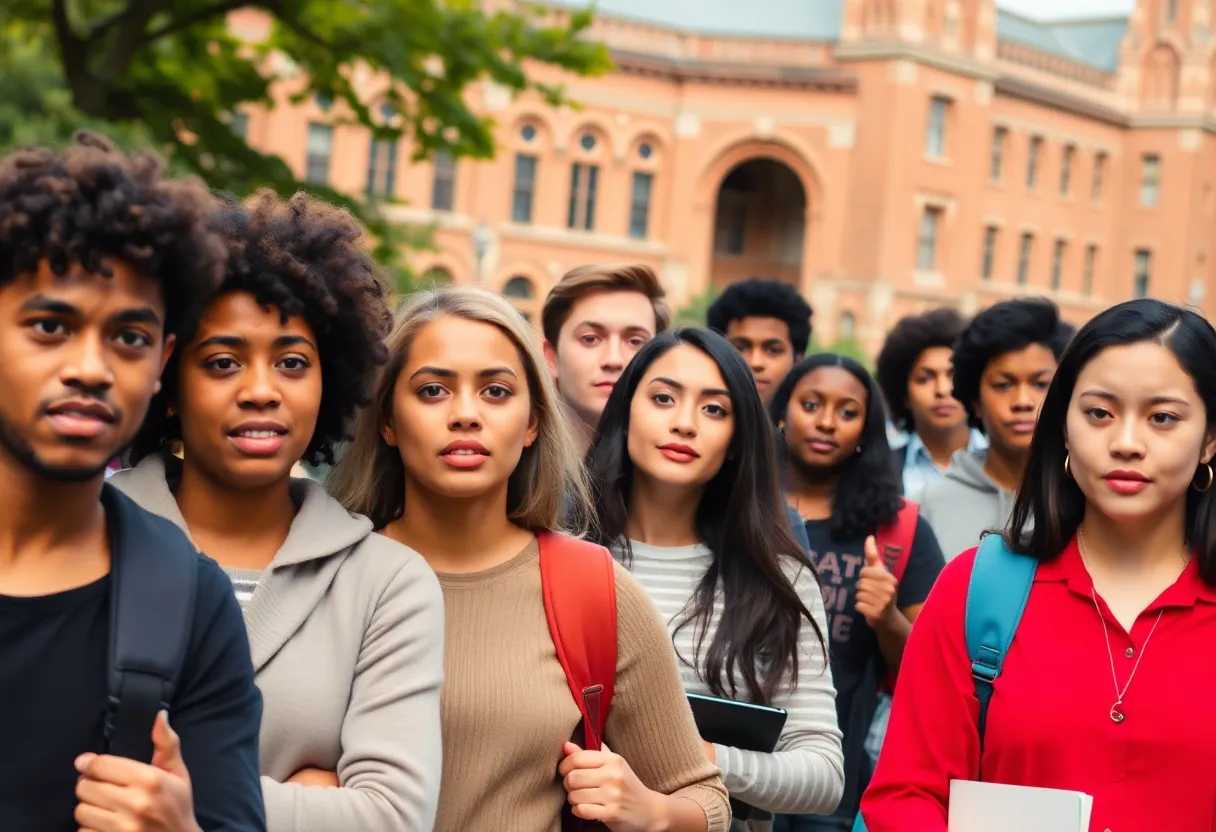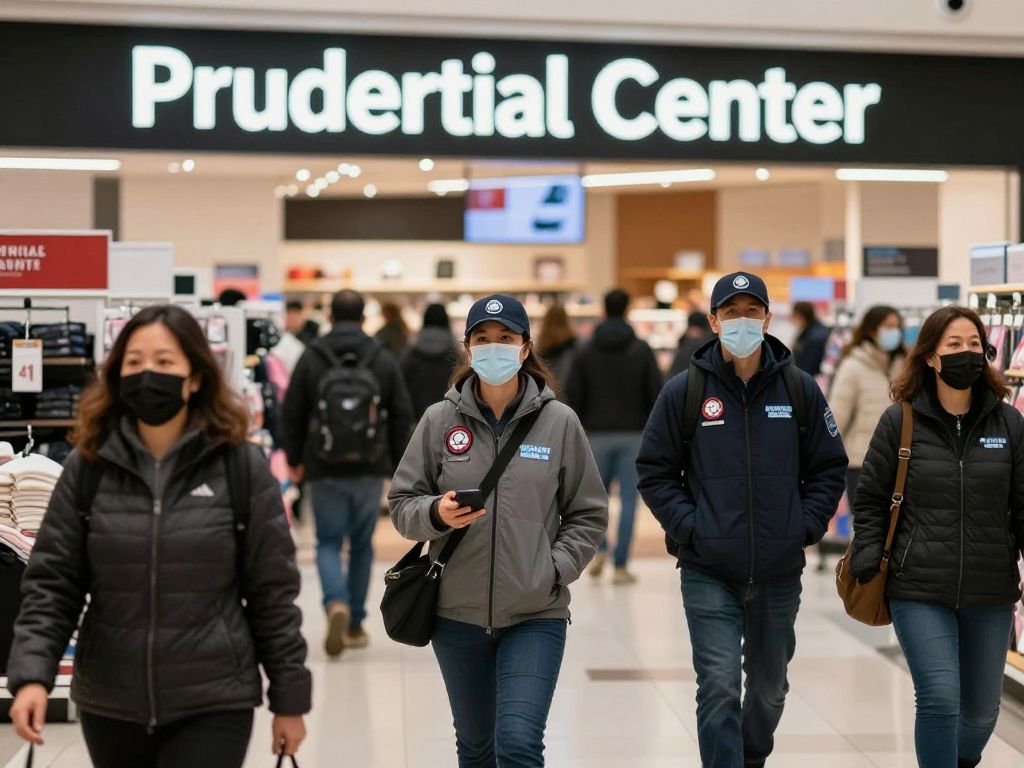News Summary
Local universities in Massachusetts, including Harvard, are grappling with serious challenges due to federal policies under the Trump administration. Visa revocations affecting international students and a significant freeze on federal funding have raised concerns about the sustainability of these institutions. The ramifications of these actions could threaten student enrollment, financial stability, and the integrity of higher education in the state. Faculty members are rallying support to navigate through these unprecedented times, emphasizing the need for solidarity amidst financial uncertainties.
Boston, Massachusetts – Local universities are facing unprecedented challenges under the Trump administration, as various policies and visa revocations have raised concerns about the future of international students and funding for educational institutions. Harvard University, along with other prominent institutions such as Emerson College, Berklee College of Music, Boston University, Northeastern, UMass, and Tufts, are directly affected by these changes.
Recent reports indicate that the State Department has revoked the visas of hundreds of international students. This action is part of a nationwide initiative by the Department of State and Immigration and Customs Enforcement (ICE) aimed at targeting students allegedly involved in criminal activities or supporting organizations that are designated as terrorist groups by the U.S. government. The implications of these visa cancellations could lead to a significant decline in international student enrollment, which plays a crucial role in the local economy.
In addition to visa issues, the Trump administration is currently freezing over $2.2 billion in grants and $60 million in contracts to Harvard University. This funding freeze is linked to the university’s alleged non-compliance with administration demands related to campus protests regarding the Israel-Gaza conflict. Harvard has taken legal action against the administration, claiming that this funding restriction is unlawful.
Meanwhile, the National Institutes of Health (NIH) is attempting to cut hundreds of millions of dollars in medical research funding directed at local universities, including Harvard. A federal judge has currently blocked this move, although the NIH may still appeal the ruling.
Furthermore, institutions such as MIT are facing investigations from the U.S. Education Department concerning allegations of racial discrimination linked to a nonprofit organization assisting Black and Latino business students.
The situation has caused emotional distress among students, prompting university administrators to stress the importance of remaining vigilant to safeguard their communities. Efforts to show solidarity and support during these challenging times have emerged, with 84 tenured faculty members at Harvard pledging to donate 10% of their salaries to sustain the institution amidst financial instability caused by the funding freeze and possible revocation of tax-exempt status.
Many international students had their Student and Exchange Visitor Information Systems (SEVIS) records terminated but were able to have them restored following legal challenges. UMass Amherst confirmed the reactivation of SEVIS statuses for 13 students, while UMass Boston reported that 10 out of 11 affected students regained their access.
The complexities of the political landscape have fostered a charged campus atmosphere, with ongoing protests against anti-Palestinian sentiments paralleling accusations of antisemitism. As a response to the administration’s recent actions, Harvard has rebranded its Office of Equity, Diversity, Inclusion, and Belonging to Community and Campus Life to further align with its institutional values.
One notable case involves a graduate student from China whose visa was revoked, leading to a federal court case that has temporarily shielded her from deportation. Additionally, the Department of Homeland Security has canceled two grants to Harvard, totaling over $2.7 million, accusing the university of mismanaging taxpayer funds.
The challenges posed by the Trump administration’s policies have raised concerns about the overall sustainability of these institutions, prompting Harvard, with its considerable endowment, to vow its commitment to defending its independence and protecting its rights against government scrutiny. The financial ramifications of these policies could also lead to significant layoffs, particularly in Harvard’s School of Public Health, where the reliance on federal funding has come under threat.
In summary, Massachusetts universities are navigating a landscape rife with difficulties stemming from changes in federal policies. The impact of visa revocations, funding freezes, and investigations poses significant risks to the student body and the future of higher education in the state.
Deeper Dive: News & Info About This Topic
HERE Resources
Massachusetts Residents Rally Against Federal Research Funding Cuts
Massachusetts Faces Economic Challenges Amid Rising Costs
Massachusetts Economy Faces Uncertainty Amid GDP Contraction
Boston Universities Reassess Developments Amid Funding Cuts
Harvard’s Office of Technology Development Boosts Innovation
Massachusetts Faces Economic Challenges Due to Federal Policies
Local Faculty Inducted into American Academy of Arts and Sciences
Phillip Owens Appointed Superintendent-in-Chief of Boston Police
Governor Healey Denounces Trump’s Attacks on Massachusetts Universities
Boston Meeting on Antisemitism Canceled Amid Tension
Additional Resources
- Boston.com: Live Updates on Trump’s Battle with Mass Colleges
- Wikipedia: Immigration in the United States
- New York Times: Trump and Harvard University Funding
- Google Search: Trump administration college funding
- Business Wire: Massachusetts Economy and Trump Policies
- Google Scholar: Trump administration impact on higher education
- NBC Boston: Trump Administration Warns Colleges
- Encyclopedia Britannica: Higher Education in the United States
Author: STAFF HERE BOSTON WRITER
The BOSTON STAFF WRITER represents the experienced team at HEREBoston.com, your go-to source for actionable local news and information in Boston, Suffolk County, and beyond. Specializing in "news you can use," we cover essential topics like product reviews for personal and business needs, local business directories, politics, real estate trends, neighborhood insights, and state news affecting the area—with deep expertise drawn from years of dedicated reporting and strong community input, including local press releases and business updates. We deliver top reporting on high-value events such as Boston Marathon, Head of the Charles Regatta, and Boston Harborfest. Our coverage extends to key organizations like the Greater Boston Chamber of Commerce and Associated Industries of Massachusetts, plus leading businesses in finance, biotech, and insurance that power the local economy such as Fidelity Investments, Biogen, and Liberty Mutual Insurance. As part of the broader HERE network, we provide comprehensive, credible insights into Massachusetts's dynamic landscape.





